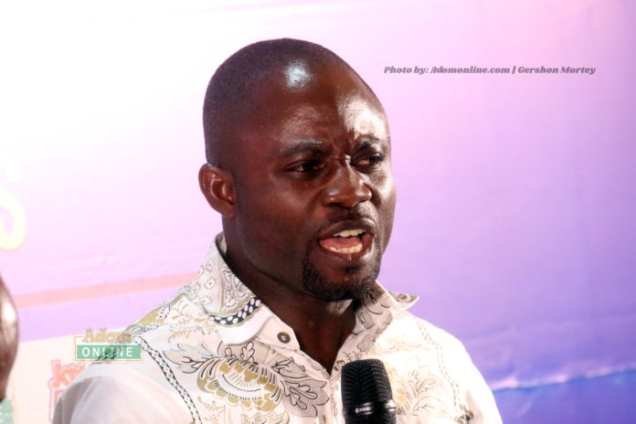Ranking Member on Parliament's Health Committee, Kwabena Mintah Akandoh, has denied suggestions that Parliament endorsed the new fees for dialysis treatment introduced by the Korle-Bu Teaching Hospital (KBTH).
Contrary to these claims, the Joaboso Member of Parliament explained that the house had instead advocated for the exemption of taxes on the regents for dialysis.
This clarification comes in response to the recent implementation of revised fees for dialysis treatment by the hospital. Previously priced at GH¢380, the cost has now surged to GH¢491.
The Renal Patients Association of Ghana has expressed concern over this hike, citing the additional financial burden it places on patients who were already struggling to manage the previous bills.
According to the association, even the previous cost was challenging for patients to afford, often requiring assistance from friends and family to cover the expenses.
The new fees exacerbate their financial strain, making it increasingly difficult for them to access essential medical care.
In an interview with Accra-based Citi FM on Tuesday, May 14, Mr Akandoh emphasised that Parliament did not sanction the increased fees imposed by the hospital.
He reiterated that the House had advocated for the removal of taxes on dialysis regents, not for the implementation of higher charges for patients.
Assuring swift action, Mr Akandoh stated that Parliament would take the necessary steps to ensure a reversal of the hike without delay.
He underscored the importance of affordable healthcare access for all citizens, particularly those in need of critical treatments such as dialysis.
“We never agreed at the committee level that the cost of dialysis must be increased. What happened was that the Ministry of Finance must waive all taxes on the [regent] of dialysis. So, it came to me as a shock when all the media houses were calling to tell me that fees had been increased. I don’t get it.
“Then, when you talk about that they make it sound as though parliament that has done some proposal and has gone ahead to approve it,” he said.
According to statistics, nearly 1,300 Ghanaians are on dialysis, and a renal patient requires about 12 sessions of dialysis a month. With the cost of GH₵380 per dialysis increased to GHS491, a patient will need nearly GHS6,000 a month for the full session.
NHIA to implement 6-month dialysis support on June 1 – CEO reveals
The Chief Executive Officer of the National Health Insurance Authority (NHIA), Dr Aboagye Da-Costa, has revealed that his outfit will commence its intended support for dialysis treatment on June 1. Speaking on Joy FM’s Super Morning Show on Wednesday, May 15, Dr Da-Costa noted that the support would be implemented for the next six months.
This initiative follows the approval of GH₵2 million by Parliament to assist patients requiring dialysis in various parts of the country.
Latest Stories
-
These Americans are done with Trump. So they’re leaving America
33 minutes -
Emirates and Air China ink MoU to explore enhanced partnership
45 minutes -
OSP flew out to meet Samuel Mahama; same approach should apply to Ken Ofori-Atta – Baffour Awuah
1 hour -
‘Ken Ofori-Atta is not a fugitive’ – Prof Ansa-Asare
2 hours -
Suicide bomber killed in Uganda on Christian holy day, army says
2 hours -
Harvey Weinstein used Hollywood clout to abuse women, prosecutor tells jury
2 hours -
Sean ‘Diddy’ Combs paid hotel security officer to hand over video, jury hears
3 hours -
Nigeria’s defence chief proposes fencing borders to curb insecurity
3 hours -
Local firms drive new growth phase in Nigeria’s oil sector
3 hours -
Mali suspends artisanal gold mining activities due to weather conditions
3 hours -
UK temporarily spared from Trump’s 50% metal tariffs
3 hours -
South African court dismisses opposition party’s fuel levy challenge
4 hours -
Euthanasia activist arrested over ‘suicide pod’ dies
4 hours -
If Ofori-Atta’s presence is crucial, then OSP’s case is weak – Nana Agyei Baffour Awuah
4 hours -
OSP declaring Ken Ofori-Atta a fugitive violates constitution – Prof Ansa-Asare
5 hours

